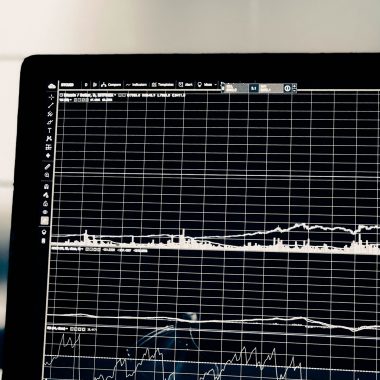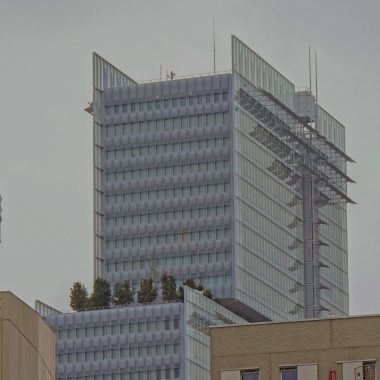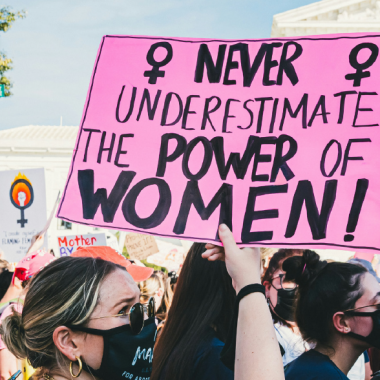The use of social networks in election campaigns will have marked a turning point since the 2016 US presidential campaign. The European elections in June are no exception to the rule, with candidates making massive use of them. As deepfakes and other disinformation tools proliferate in the digital space, candidates are appropriating the codes of the new platforms to appeal to a younger electorate and stand out in an election often neglected by the French population.
TikTok, the new arena for political communication
Often presented as an election unloved by the French, the European elections, after a decline in turnout recorded in recent years, are gradually winning back the hearts of voters. In 2019, the European Commission had invested heavily in social networks in the hope of mobilising young people and encouraging them to go to the polls. After 74% of 18-24 year-olds abstained from voting in 2014, the ‘26 May, I’m voting in the European elections’ campaign in 2019 was a success, with a 14-point increase in turnout among young people. This year, communication around the elections has been more timid, but one of the vice-presidents of the European Commission, Margaritis Schina, launched an appeal to Taylor Swift, who was touring Europe at the time, to encourage young people to go to the polls on 9 June.
The need to mobilise young voters has not escaped the attention of the candidates for the 2024 European elections, who have found their new hobbyhorse: TikTok. This is particularly true of Jordan Bardella (who has no fewer than 1.1 million subscribers), who is very active on the platform. The RN candidate shares his media appearances there and has no hesitation in appropriating the platform’s codes to win over and boost his profile among young voters. Using the humour ‘POV: quand tu bois les larmes des macronistes’ (when you drink the tears of the Macronists), announcing his meetings against a backdrop of techno music, behind-the-scenes extracts… The candidate does not hesitate to put himself on stage to convey a young, accessible image that is close to the French, far removed from the sulphurous image of the party that is the heir to the Front National.

A real political issue, the very use of TikTok is being put forward as a campaign argument. Recently, PS candidate Raphaël Glucksmann announced that he was withdrawing from the Chinese platform (despite its 60,000 subscribers) out of a concern for consistency with his political line and his status as an MEP. In February 2023, the European Commission banned all its officials from using the application on their work phones because of concerns about data security. The MEP, who had himself chaired a committee on foreign interference in Europe, says he ‘refuses to play the fool on TikTok while denouncing this interference’ and stresses that he will not hesitate to point the finger at his political opponents in Parliament who are ‘over-investing in this platform’, in the image of the president of the Rassemblement national.
Regulations and counter-attacks: on X, disinformation rages
While social networks may prove to be marvellous communication tools during election periods, they are no less conducive to the dissemination of false information, polarising rhetoric and the manipulation of public opinion. To prevent these risks, the various supervisory bodies have been quick to take up the issue of electoral campaigning. In July 2023, the Commission nationale des comptes de campagne announced that while the blue dot (formerly synonymous with notoriety and legitimacy on the platform, now a symbol of a paying subscription) made it possible to increase visibility, it was now considered to be a new form of advertising sponsorship and therefore prohibited during election campaigns. But sponsorship is far from being the only feature that worries the authorities. At the end of March, the European Commission asked platforms to clearly identify content generated by artificial intelligence, in order to combat disinformation during the election campaign. If they fail to do so, the European executive may launch an investigation against the platform that fails to comply with these measures, and impose a fine of up to 6% of its global turnover. A world first.
But the battle for information is not always rooted in new technologies: recently, the Renaissance candidate Valérie Hayer was the victim of a disinformation campaign launched on the social network X by a Rassemblement National activist. The campaign poster featured a portrait of the candidate, using the party’s graphic codes, and the slogan ‘We need a European tax’. Although the poster looks completely realistic, the party logo is missing. And with good reason: it’s actually a fake campaign poster, hijacked to discredit the party’s new leader and blur the political message. While these techniques may seem questionable, they are now an integral part of an online campaign and are not exclusively practised by the militants of the flame party. In early March, a poster in the colours of the Rassemblement National was also shared on X announcing a ‘major meeting in support of Vladimir Putin’ organised by the party. While these parody posters are not necessarily illegal, they do help to confuse voters.

What impact do social networks really have on an election? While the answer remains partial, it can be said that social networks :
– allow information to be disseminated quickly ;
– create a feeling of closeness between voters and a candidate through direct communication;
– increase voters’ involvement in the campaign, by enabling them to participate directly via their screens.
While disinformation campaigns, information bubbles and manipulation by external actors represent a risk to democracy, social networks are now an essential communications tool that can reach as many people as possible and, perhaps, win back the hearts of young voters.










